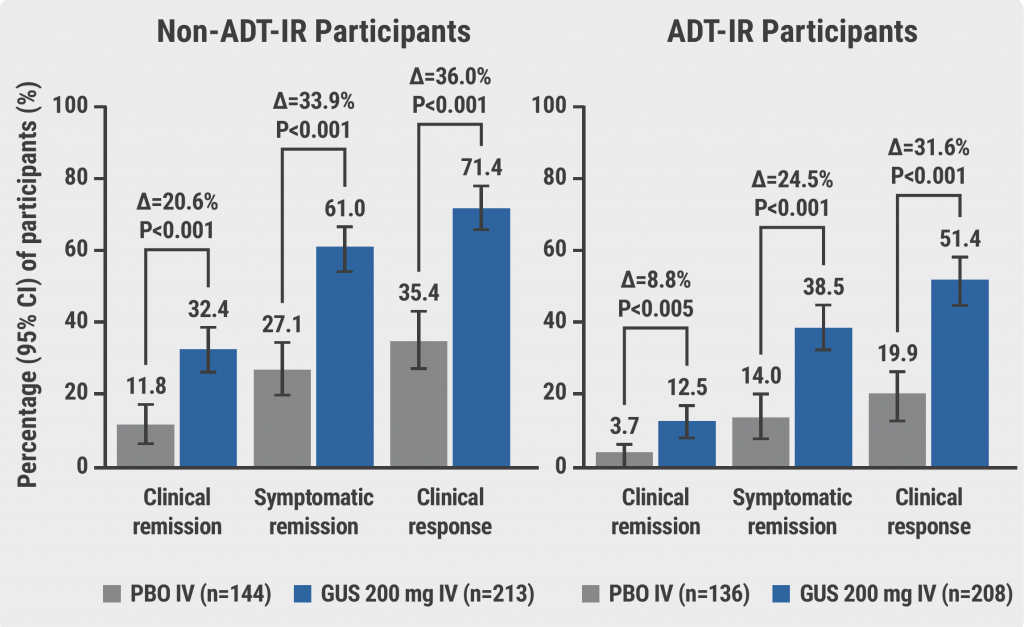A multicentre, retrospective cohort study investigated the association between obesity and treatment response to adalimumab and infliximab in IBD patients (n=728) [1]. Treatment failure, anti-drug antibodies, and trough levels were the assessed outcome measures. Mixed-effects Cox regression analysis was used to examine the data.
In patients treated with adalimumab, obesity was significantly associated with an increased risk of developing immunogenicity (aHR 2.07; 95% CI 1.09-3.91). In addition, trough levels in obese patients on adalimumab were on average 0.20 mg/L lower than the trough levels of non-obese patients. After adjusting for confounding factors, obesity was not significantly associated with treatment failure in patients receiving adalimumab (aHR 1.40; 95% CI 0.93-2.11). However, the results trended towards an increased risk of treatment failure in these patients. Obesity was not associated with treatment failure, immunogenicity, or trough levels in patients using infliximab.
- Mahmoud R, et al. Obesity is associated with a higher risk of immunogenicity to adalimumab, but not infliximab, in patients with IBD. P414, ECCO 2021 Virtual Congress, 2-3 & 8-10 July.
Copyright ©2021 Medicom Medical Publishers
Posted on
Previous Article
« Diet rich in omega-3 fatty acids may help quiet persistent migraines Next Article
Factors of coping difficulties in IBD revealed »
« Diet rich in omega-3 fatty acids may help quiet persistent migraines Next Article
Factors of coping difficulties in IBD revealed »
Table of Contents: ECCO 2021
Featured articles
Biologics Updates
Similar efficacy of ustekinumab and adalimumab for moderate-to-severe CD
Ustekinumab safe and effective in elderly CD patients
Early clinical remission and response following risankizumab therapy in CD
Risk of hospitalisation and surgery linked to IBD biological
Obesity increases the risk of immunogenicity to adalimumab in IBD
Improvements in Small Molecules
Upadacitinib meets primary endpoint for moderate-to-severe UC
Promising safety and pharmacokinetic data on BT051 for UC
Surgical closure plus anti-TNF outperforms anti-TNF alone for perianal fistula
Novel Biomarkers
Blood proteins predicting relapse in CD identified
Extracellular RNA has potential as a non-invasive biomarker in IBD
Risk Mitigation
No increased risk of (severe) COVID-19 among IBD patients
Oral faecal microbiota transplant therapy efficacious in UC
Artificial intelligence outperforms human classifying of endoscopic images in UC
Increased risk of rectal cancer after colectomy in IBD
Risk of colorectal cancer is detected by low-pass whole genome sequencing
Large variability in IBD care and education across Europe
Ultra-processed food intake associated with IBD
Factors of coping difficulties in IBD revealed
Related Articles
March 12, 2021
Olamkicept may induce response in IBD patients

© 2024 Medicom Medical Publishers. All rights reserved. Terms and Conditions | Privacy Policy
HEAD OFFICE
Laarderhoogtweg 25
1101 EB Amsterdam
The Netherlands
T: +31 85 4012 560
E: publishers@medicom-publishers.com

